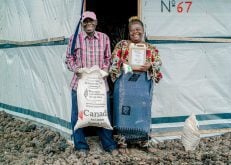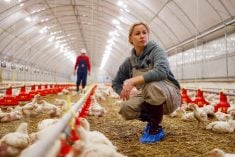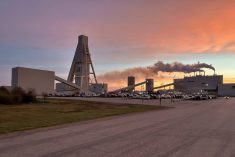Livestock producers in Manitoba and Saskatchewan coping with excess moisture have been offered federal tax deferrals if they were forced to sell breeding animals.
Producers in designated areas are allowed to defer income tax on the sale of breeding livestock for one year if they had to reduce their herds by 15 percent. If the herd was reduced by more than 30 percent, 90 percent of the income from net sales can be deferred, said a government news release on Aug. 2.
Proceeds from deferred sales are included as income in the next tax year, when they may be at least partially offset by the cost of buying replacements. In the case of consecutive years of designation, producers may defer sales income to the first year in which the area is no longer designated.
Read Also

B.C. ostriches culled, CFIA confirms
Ostriches on an embattled Edgewood, B.C. farm have been culled after a prolonged legal battle, the Canadian Food Inspection Agency has confirmed.
The tax relief is welcomed in Manitoba where producers may have to cull herds this fall when they determine how much winter feed they have available.
“I do expect there to be herd draw down in the Lakes region. In those cases the tax deferral will be extremely helpful,” said Cam Dahl, manager of Manitoba Beef Producers. While it is not known how many cattle may have been sold off because auction market volumes have been light this summer, that could change later.
Some hayfields in the Interlake region are under nearly two metres of water so any forthcoming government assistance is welcome, he said.
Few people probably sold off their herds in Manitoba or Saskatchewan because they want to keep the base population intact. More were probably moved to higher ground, said Jack Hextall, chair of the Saskatchewan Cattlemen’s Association. He ranches near Grenfell where waters are slowly seeping away.
“The issue was more moving cattle around to other pastures,” he said.
He hopes other programs can cover the costs of lost pastures and reseeding once the water is gone.
“There was a lot of grassland under water and a lot of lost production. The long term rehabilitation of these forages needs to be addressed,” he said.
Besides a tax deferral, other federal-provincial programs such as crop insurance, AgriRecovery, AgriStability and AgriInvest, are available to help farmers affected by flooding.
For a complete list of designated areas for the program visit AAFC www.agr.gc.ca/drought.















